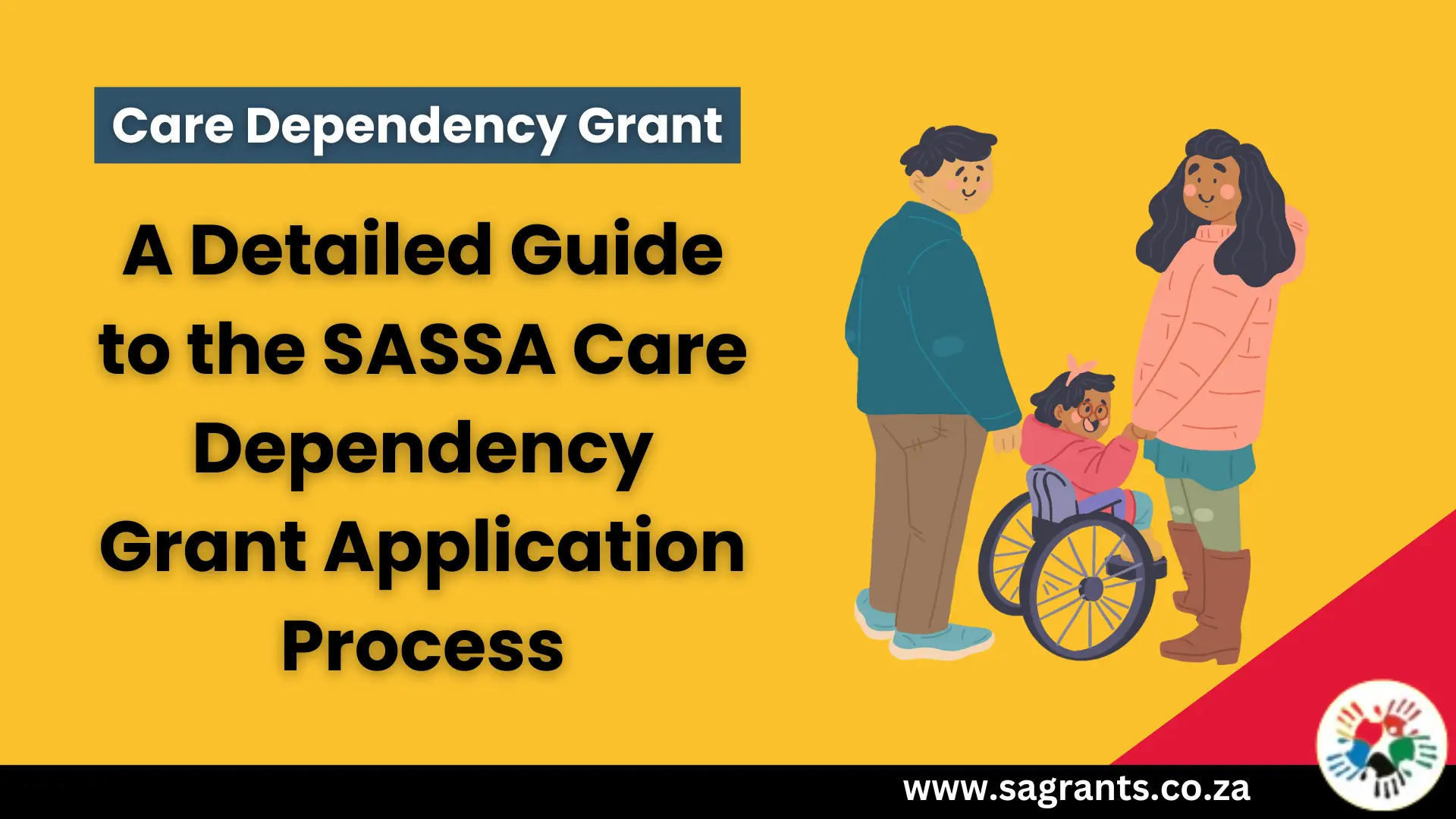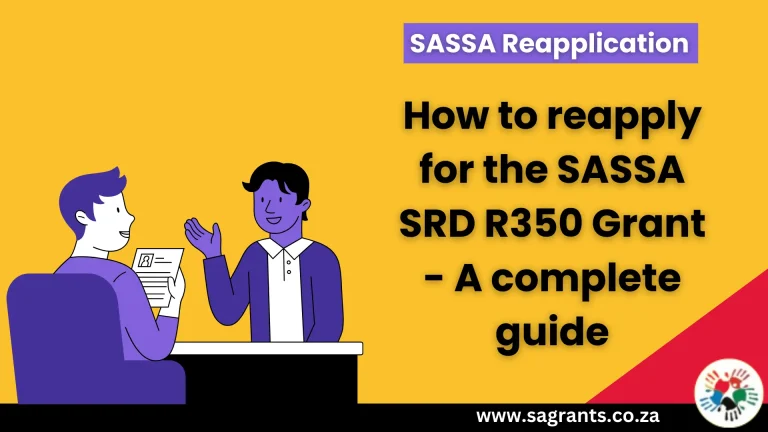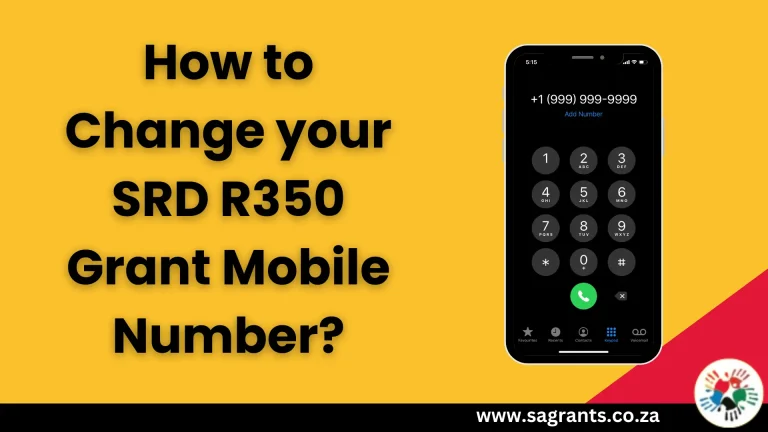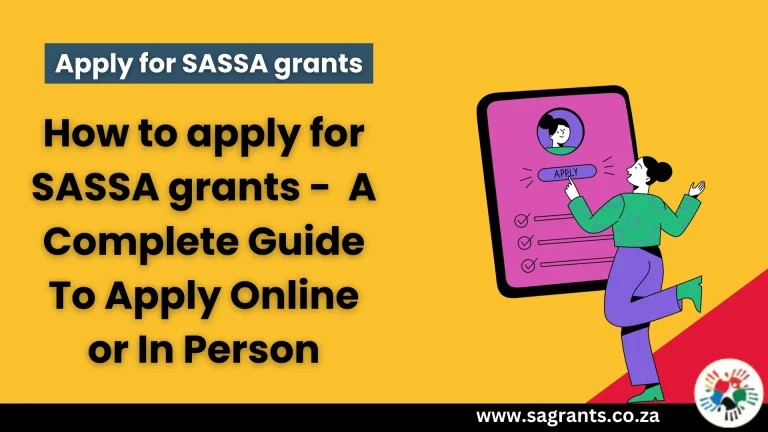SASSA Care Dependency Grant [2024] – A Complete Application Process

The South African Social Security Agency (SASSA) is an organization in South Africa that offers various social grants to provide financial assistance to South African citizens. Whether you are an old person, disabled, or a child, SASSA provides grants to people from every category. The care dependency grant is one of them.
What is a care dependency grant? The care dependency grant is a monthly payment from the government of South Africa to the parents, foster parents, or primary caregivers of a child under the age of 18 who requires full-time home care because of a mental or physical disability. This grant is very helpful for disabled children.
The grant is offered to severely disabled children from the time of birth until they turn 18. The child should receive full-time care at home only and not in any state-funded institutions. The child’s disability must be assessed by the doctors appointed by SASSA. Let’s go through the eligibility criteria and complete the application process.
SASSA Care Dependency Grant Eligibility Criteria
The care dependency grant is paid to severely disabled children who require full-time home care. To receive the grant, you should meet the defined eligibility criteria:
Means Test for the SASSA Care Dependency Grant
It is important that only deserving people get social grants. For that, SASSA uses a means test to evaluate the income of applicants. As of October 1, 2023, if you are a single parent, then your annual income should be less than R 250,800, and if you are married, then your annual income should not cross R 501,600.
If you are a foster parent, then this condition of the means test does not apply to you. If you are receiving a foster child grant, you can also apply for a care dependency grant. However, applicants for the child support grant can’t apply for this grant.
The means test requirements are different for each grant.
How much is the SASSA Care Dependency Grant?
As per the latest grant increase of October 1, 2023, each eligible child receives a payment of R2,090 per month under the care dependency grant. It is expected that the grant amount will increase by R10 from April 1, 2024, so that the expenses can be met. Generally, the increase in grant amount is declared in the national budget speech.
How do I apply for the SASSA Care Dependency Grant?
To apply for this grant, the child must be severely disabled, and you have to submit proof of it. The medical assessment of a child will be done by SASSA-appointed doctors. You have to submit this assessment report as proof. Once you get this report, you can visit your nearest local SASSA office to fill out the application form. For online applications, follow the instructions given on the SASSA services website.
If you are unable to visit the SASSA office because of old age or sickness, then you can ask your friends or family members to apply for the grant on your behalf. The appointed person should bring the doctor’s note with him explaining why you can’t come to the office.
The application form must be completed in the presence of a SASSA officer in the office itself. So if you face any difficulty while filling out the form, the SASSA officer will assist you in the process. The SASSA officer will also take your interview and tell you if you qualify for the grant or not.
After completion of the process, you will receive the dated stamped receipt with the SASSA officer’s name on it, who assisted you. This receipt is the only proof of your application; keep the receipt with you.
Documents Required for Care Dependency Grant Applications
To prove your eligibility for the grant, you have to submit the required documents along with your application form. The required documents include:
How much time does it take to process the SASSA care dependency grant application?
After your application is submitted to SASSA, it is sent for review. The processing time for a care dependency grant may vary from 30 days to 3 months. It depends on the number of applications received by SASSA. You will receive the grant payment only if your application is approved. You will receive the payment from the date you applied.
If your application is rejected by SASSA, they will provide you with a written explanation of why your application was rejected. If you are unhappy with the decision and disagree with it then you can appeal to the Department of Social Development.
How do I check the SASSA Care Dependency Grant Status?
After you apply, it is important to stay updated with your application to receive the grant payment successfully. You must regularly check your application status. You can visit the SASSA services website to check the application status, or you can also use any SASSA status check online tool. The other methods to check your application status include:
What should I do if my care dependency grant application is declined by SASSA?
Your application will be declined or rejected only if you fail to meet the eligibility criteria or if you are found engaged in fraudulent activities. Otherwise, it will only happen by mistake. If you meet the eligibility criteria and still your application is rejected, then you can ask SASSA to reconsider your application. If your reconsideration request is canceled, then you can submit an appeal.
You have to submit an appeal to the ITSAA committee within 90 days of receiving the notification. ITSAA is a committee formed by the Department of Social Development that processes the submitted appeals. If you are unaware of the appeal process, then you can get help from the local SASSA office. The officials will explain the whole process.
After you appeal, the ITSAA committee will review your care dependency grant application. If, during the review, the committee finds you eligible for the grant, then they will reverse the SASSA’s decision and your application will be approved. You will receive the payment on the date you applied. If the committee disagrees with your appeal, then it will be rejected.
Payment Process for the SASSA Care Dependency Grant
The payment schedule for the care dependency grant is not fixed. The grant payment dates are generally announced at the end of the previous month. Your application must be approved to receive the grant payment. The grant will be paid to you from the date you applied.
To receive the grant payment, you have to select the payment method when you fill out the application form. You can choose from the following methods:
To receive the grant payment in your bank account, you must give your consent. So fill out the SASSA bank account consent form and submit it along with the following documents:
- A birth certificate or an identity document as proof of your identity.
- The bank account number that is registered in your name.
- The last three months’ bank statement, which clearly shows your name and account number.
If you have submitted another person’s bank account number during the initial application process, you must change your bank details as soon as possible. Otherwise, your grant will be delayed or stopped. Your new bank details will be verified by SASSA, and once the verification is done, you will receive the money in a new account within the next month.
If you are too old or sick and cannot collect the grant by yourself, then you can ask your family members or friends to collect the grant on your behalf.
How do I check the SASSA care dependency grant balance?
The social grants offered by SASSA are the only source of income for many people in South Africa, and it is important to manage those funds wisely to fulfill their monthly needs. So once your grant application is approved and you receive the grant money, you must regularly check your grant balance. You can use the following methods to check your grant balance:
Why does SASSA conduct reviews for care dependency grants?
The social grants are paid for a certain period only. Those will be paid until you meet the eligibility criteria and requirements of the means test. Your grant will be canceled and suspended if you fail to meet the eligibility criteria. SASSA conducts reviews from time to time to check your eligibility.
The SASSA will send you a written notification 30 days in advance of the date of the review or the date on which your life certificate is due. In the notification, the date and the location of the review will also be mentioned. For refugee applicants, the review is conducted when their refugee status has expired.
If you receive your grant from a bank or any institution, then submit your life certificate annually to the SASSA office. For sick or elderly beneficiaries, SASSA arranges a home visit to conduct a review. You will receive a compliance receipt once your review is completed.
Reasons for SASSA Care Dependency Grant Suspension
If your circumstances have changed or you have any updates, then share those with the SASSA as soon as possible to avoid any delay or suspension of the grant. SASSA exercises zero tolerance for fraudulent activities. If SASSA finds you involved in any fraudulent activities, your grant may be suspended. The main reasons for grant suspension are:
Restoration of Care Dependency Grant
Your care dependency grant may get suspended because of any of the above reasons. If you think this was done by mistake, then you can apply for the restoration of the grant. The application for restoration must be made within 90 days of the suspension. You have to submit the restoration appeal to the Ministry of Social Development.
Reasons for the Lapsing of Care Dependency Grant
If your grant lapses, then the payment will be stopped. Your care dependency grant may lapse if any of the following situations happen:
SASSA Grant Beneficiary Responsibilities
As the SASSA grant beneficiary, you have to fulfill certain responsibilities, which include:
FAQs
Conclusion
Today’s children, who are the future youth of the country, are the backbone of that country. They should get the proper facilities. If they are disabled, then they can’t do the work. And that’s why the care dependency grant is very helpful for such children. This grant helps parents take care of their children. If you fulfill the eligibility criteria, then apply for the grant today itself.
SASSA contact details
If you have additional queries or need any assistance with your child support grant application, then you can reach out to SASSA directly via the following channels:

![SASSA Old Age Grant [2024] – A Detailed Guide on Old Age Pension](https://sagrants.co.za/wp-content/uploads/2024/01/SASSA-old-age-grant-768x432.webp)
![SASSA Child Support Grant [2024] – A Complete Application Process](https://sagrants.co.za/wp-content/uploads/2024/01/SASSA-Child-Support-Grant-768x432.webp)


![SASSA Reconsideration Application and Status Check [2024]](https://sagrants.co.za/wp-content/uploads/2024/02/SASSA-Reconsideration-768x432.webp)
